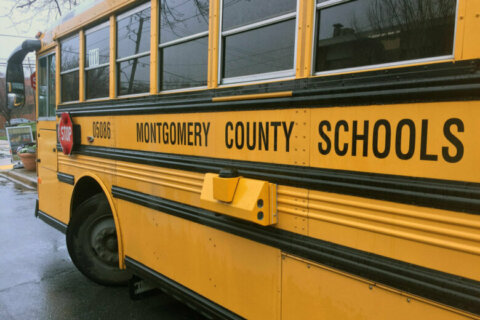WASHINGTON — Pesky geese at two parks in Maryland will soon be turned into food for the homeless, after attempts to control their population by non-lethal methods over the years have failed.
David Petersen, natural resources specialist for Montgomery Parks, said that 100 to 150 geese will be taken from Martin Luther King Jr. Recreational Park in Silver Spring, Maryland and Rock Creek Regional Park near Gaithersburg.
The bird round up is expected to happen between the end of June and the middle of July. The geese will be processed and the meat will be donated to the Maryland Food Bank.
“We didn’t jump to this method,” said Petersen. “It’s not something we take lightly.”
Excessive feces is one of the problems with the geese, which can produce up to a pound a day per bird.
Petersen said the feces carries potentially harmful bacteria that impacts the water quality at the parks and causes unsanitary conditions on athletic fields and lawn areas.
Petersen said the birds’ grazing can damage turf and athletic fields. He said that, in the spring, the geese are protective of their nests and can attack people, which can be a problem for small children.
The Humane Society of the United States has voiced its concern over the plans and would prefer the park system exhaust every non-lethal type of management.
“For a number of years we’ve been trying to control the geese and the issues they bring,” Petersen said. “We’ve had everything from mess management to habitat landscape manipulation, some control devices such as sprinklers and bubblers in the ponds at MLK. All these things have been marginally effective.”
So now, he said, they’ve decided to take next step to remove of the geese from the site.
“For us it’s the first time we’ve used this method, but it is by no means unprecedented in our area,” he said.
Petersen said this is a problem up and down the East Coast.
“Throughout the region, this is a control method that’s been used for decades,” he said. “It’s used anywhere from local agencies up to federal agencies, as well as private entities, homeowners associations not only in the region but also in the country, too.”







